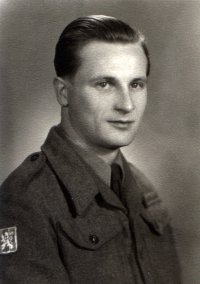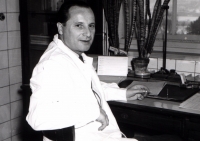As if the war never existed

Download image
Oldřich Glet was born on the 25th of March 1920 in Michálkovice near Ostrava. He grew up in a very modest background, his father was a miner and his mother was a housewife and took care of the large family. They had six children; Oldřich Glet was the oldest one and he had to take care of and depend mainly on himself since he was fifteen. At that time, he left for Slovakia where he started to study at Vocational school of horticulture and one year later, he started to study at Higher vocational school of horticulture in Mělník. A German gardening company employed him after Secondary-school leaving exam in summer 1939 and he left for Dresden and subsequently to Berlin and he was sent to France in 1941. There, he managed to get in touch with members of French resistance movement Résistance and with their help he got across Switzerland to Marseilles which was in at that time already liberated part of France. His destination was Great Britain where he wanted to join Czechoslovak foreign military units. He had to wait two months in very difficult conditions of Marseilles prison for an acceptance by American authorities and a subsequent deportation to Italy. There, already under the command of Czechoslovak officer, he went through a basic training and he was transported on a boat over Gibraltar to Glasgow in Scotland in December 1944. He was trained to become a radio operator and he swore a military oath there. He became a member of Czechoslovak Independent Armoured Brigade Group and was transferred to the front near Dunkirk in France in spring 1945. He took part in the siege of Dunkirk as a radio operator of a tank company at the very end of war. On the 17th of May 1945 he returned back to Czechoslovakia across France, Luxembourg and Germany. He was demobilized in the rank of lance corporal in August of the same year. He studied at University College of Agriculture in Prague and then he worked at the Ministry of Agriculture. As a former member of Czechoslovak units in West, he had to leave the Ministry in 1951. He was forced to work in Spolana in Neratovice. Later he could start to work in his field again and he did scientific work in Research Institute of Crop Production in Prague. He achieved status of war veteran for his participation in World War II fights.

